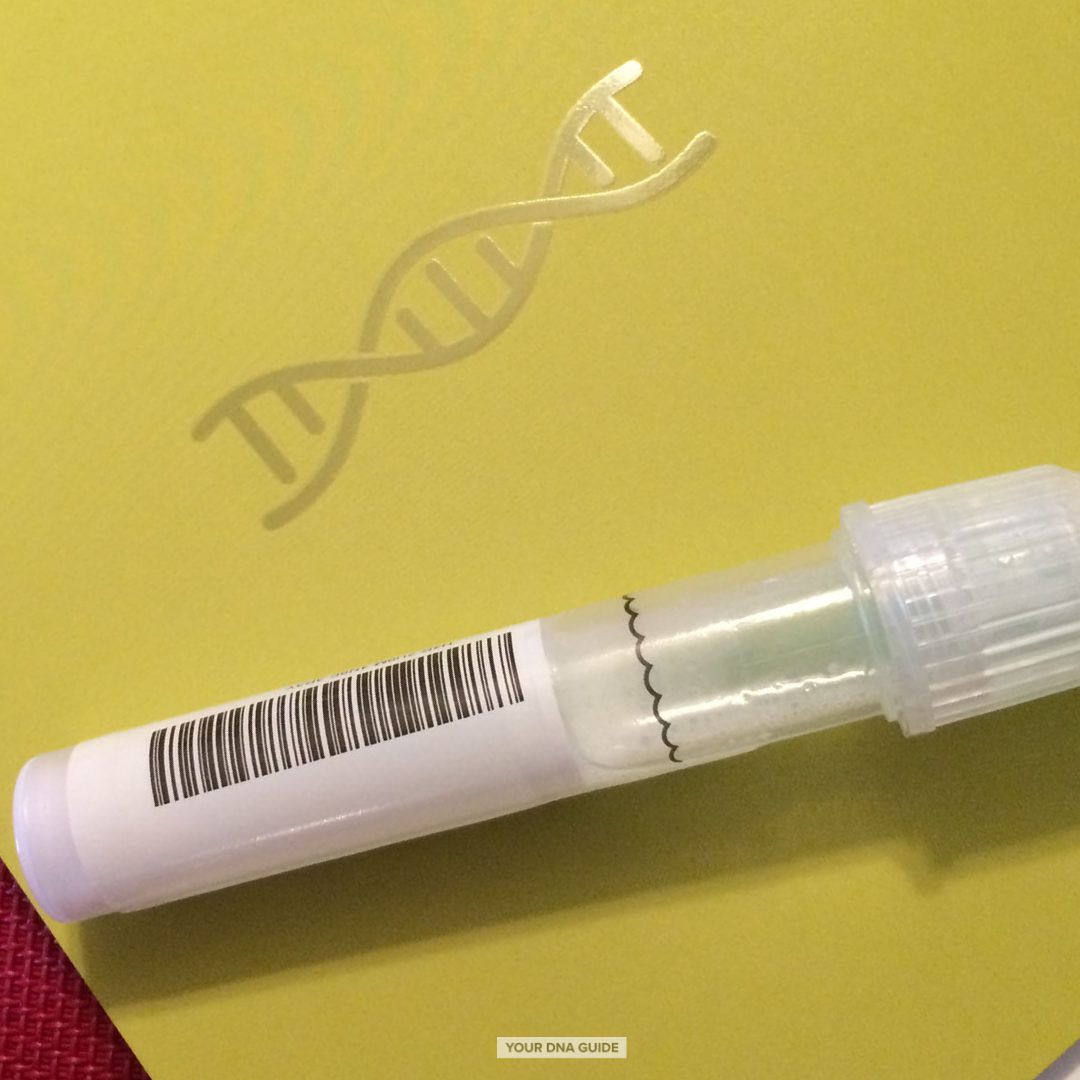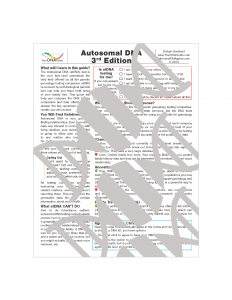Why take a DNA test now? If you haven’t already taken a DNA test for genealogy, here are 4 reasons not to put it off any longer.
 Journalist Malcom Gladwell uses economic principles to study human behavior. He describes a moment in time we all instinctively know: the “tipping point.” He calls it “the moment of critical mass, the threshold, the boiling point.” In other words, it’s the moment when the party starts to get fun.
Journalist Malcom Gladwell uses economic principles to study human behavior. He describes a moment in time we all instinctively know: the “tipping point.” He calls it “the moment of critical mass, the threshold, the boiling point.” In other words, it’s the moment when the party starts to get fun.
In DNA testing in the United States, that tipping point is now. We have reached the point where most genealogists at least have the passing notion that genetics can be useful in genealogy. Most genealogists—I would guess 85%—who attend the lectures I give have already had at least one DNA test completed.
Let’s stop for just one minute and recognize how incredible that is! Not too long ago I was still trying to convince people that this was a good idea and that you didn’t have to dig up your ancestors to do it! But now we have scores genealogists that have not only tested themselves, but have convinced half their family to test as well.
This got me thinking though, who are those people who haven’t tested? And why haven’t they tested?
Why take a DNA test
One category of people sans DNA test are those who have full pedigree charts. I have heard many of them say that they don’t see the need to do DNA testing since they have most of their lines “way back.” To those with the blessing of ancestors who kept better records than mine, I am offering four reasons why you should RSVP anyway to my invitation to take a DNA test.
1. To create a record.
First and foremost, your DNA is a record. Just as you have obtained birth certificates and marriage licenses for your ancestors, your DNA is a unique record. It does represent you and your family in a way that no other record can. It documents your genetic history, and should be preserved. Further, while you may doubt the ability of your DNA to shed light on your current genealogy, don’t underestimate the contribution it might make in the future.
2. Because you have second cousins.
And third cousins, and fourth cousins, etc. Having your DNA tested means you can see a biological connection between you and other relatives that have had tested.
For some, the idea of meeting or forming relationships with distant cousins may not be appealing. But even if you have no intention of attending DNA family reunions or striking up a warm correspondence, there is something reassuring about seeing them there on your match list. There is a certain thrill that comes with recognizing the connection between you and someone else. A connection that may not add any new names to your tree, but it helps you feel a deeper connection to your ancestor, and a greater appreciation for your biology.
Speaking of cousins, now that more and more people have tested, the DNA party is getting bigger! That means when you test, you’re more likely to have meaningful DNA matches whose data could add something to your knowledge of your family history.
3. To verify what you think you know.
Seeing these cousins on your list can actually help verify the genealogy you have already collected and documented. It helps to reassure you that you have made the right steps along the way, and may help you gain additional resources about your relative through their descendants that you find on your match list. Resources that can help turn that ancestor from a name on a chart, to a story and a life worth preserving.
4. To help others who need your DNA.
If you have been lucky enough to fill in most of the blanks on your tree, you can help others do the same by simply having your DNA tested. Your DNA provides a link to your tree that might be just what someone needs to overcome a brick wall in their family history.
There is one good reason not to test—and it’s only fair that I mention it. Some people aren’t ready to ask their DNA about their family history. Family secrets may reveal themselves. Unexpected DNA connections may pop up. Long-cherished ethnic identity may undergo some revision. When you test, you need to be ready to face whatever you find. If you’re interested in testing, but not quite ready to interact with genetic relatives, you can at least take the first step by testing with a company like AncestryDNA that lets you opt-out of DNA matching.
However, if you have been hanging out on the outskirts of DNA testing only because you feel like your tree is full enough without it, do it anyway! It’s time to accept your invitation to this party.
 Get started with my inexpensive must-read guide to autosomal DNA tests (that’s the kind everyone should start with). This guide will help you focus on what you most want to learn, determine where to test and know what to do with your results.
Get started with my inexpensive must-read guide to autosomal DNA tests (that’s the kind everyone should start with). This guide will help you focus on what you most want to learn, determine where to test and know what to do with your results.
Originally published May 2017 on genealogygems.com.

